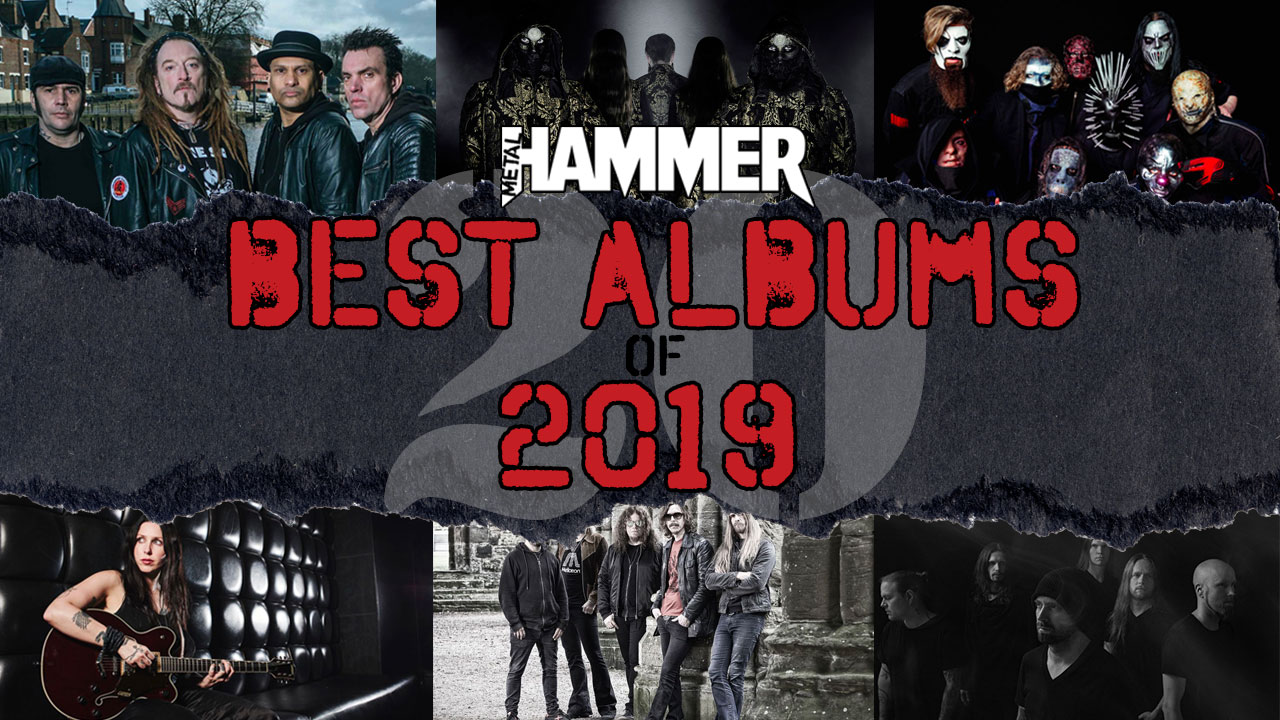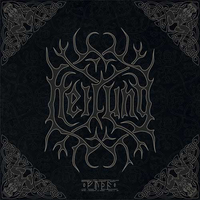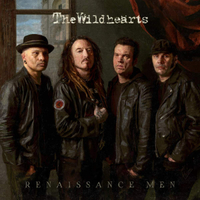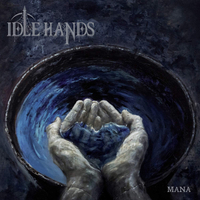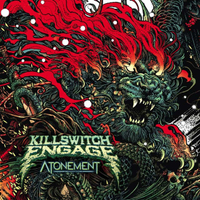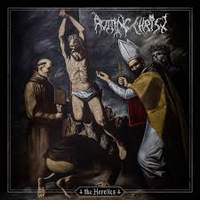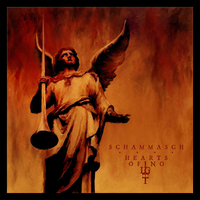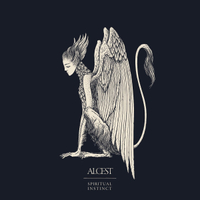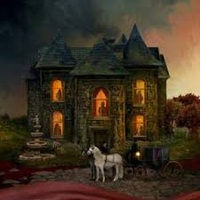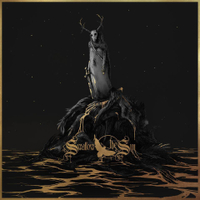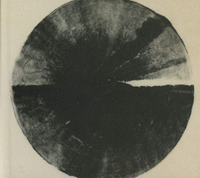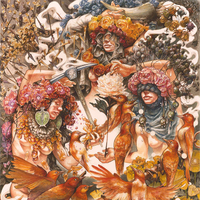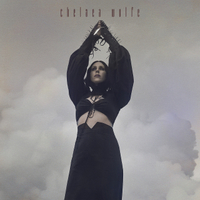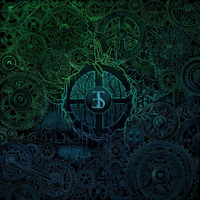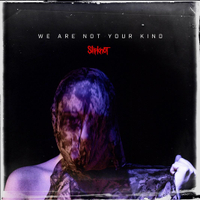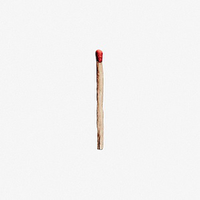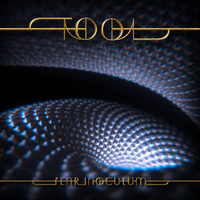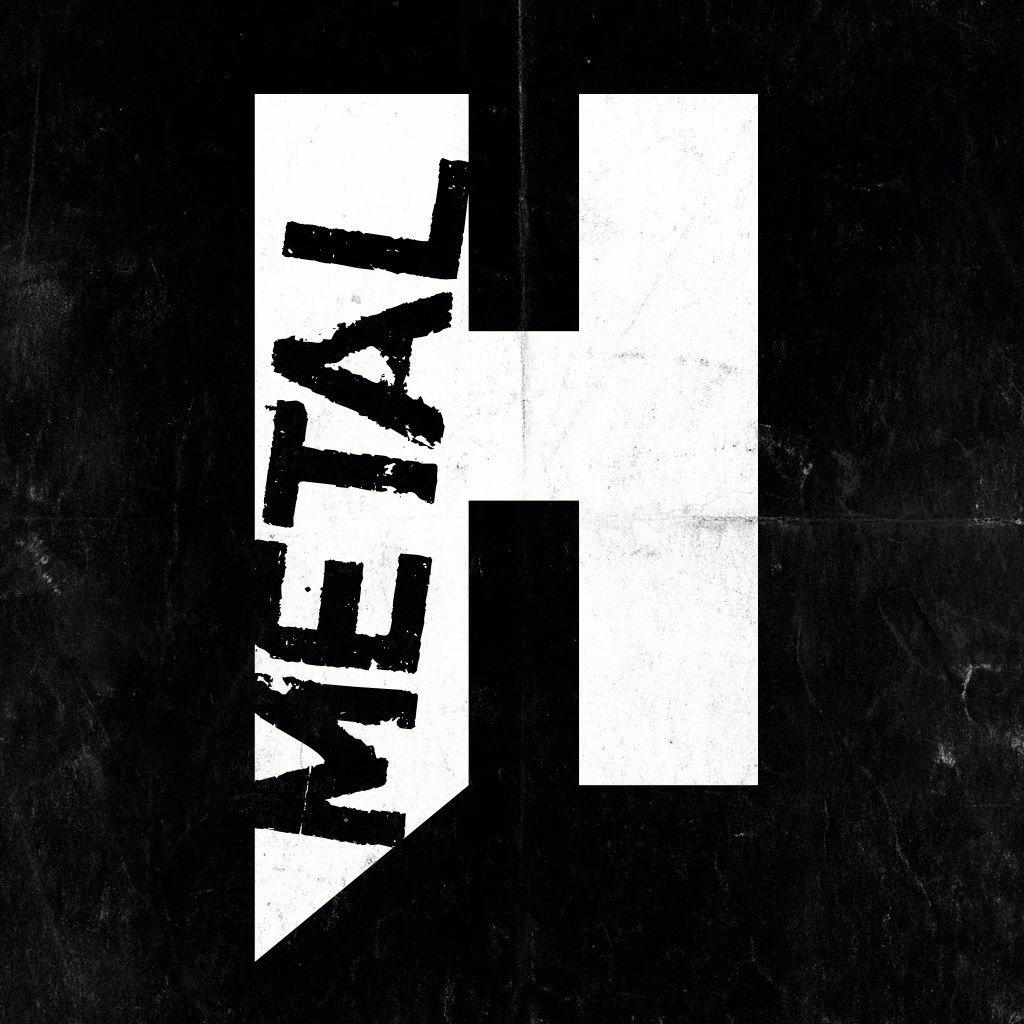2019 has pretty much come to a close, so you know that that means – a whole load of year round-ups!
We polled our entire team of critics (check out all of our contributors' individual lists here) and the results are in!
You already know that Tool took the number one slot, but who came second? Here are the 20 albums that defined the year...
To see the full list of the 50 best albums of the year, check out the current issue of Hammer – find your nearest copy here.

20. Heiling - Futha
The Old Ways never sounded so beguiling as they did on the neo-folk animists’ second studio album. Torchlit and hypnotic, Futha was a ritualistic tapestry that drew you even further into the unique universe that Heilung have created.
But for all the elemental pull, this would have been empty without a human heart beating at its centre. And Futha had humanity to spare.
19. The Wildhearts - Renaissance Men
Every now and then, The Wildhearts return to remind everybody what a real rock’n’roll band sounds like.
Renaissance Men gate-crashed the UK charts with gusto: 10 balls-out rock anthems with countless amazing riffs and an excess of wit, warmth and heart, it was Ginger and the gang’s finest record since their seminal debut and, without question, the coolest, loudest and snottiest rock album of 2019. Wallop.
Ever wondered what The Lost Boys would sound like if they could riff? Look no further than this absolute peach.
Idle Hands not only tickled your nostalgia, they stood defiant in their own right as modern-day gothic heavy metal masters, and with outstanding debut Mana delivered a bible of hooks, riffs and choruses impossible not to bellow along to with raised fist.
17. Killswitch Engage - Atonement
The Massachusetts metallers ascended to stratospheric new heights with Atonement, their eighth full-length campaign and first since frontman Jesse Leach’s vocal surgery.
Stacked to the rafters with jackhammer tempos and the absolutely blazing riffage of guitarists Adam Dutkiewicz and Joel Stroetzel, bangers like The Crownless King and The Signal Fire (featuring ex-vocalist Howard Jones), loudly reaffirmed Killswitch’s status as one of metal’s most important voices.
16. Full Of Hell - Weeping Choir
Celebrating their 10th year as a band, Full Of Hell refuse to mellow with age, with the abrasive Weeping Choir proving one of their most hyperactive, inventive releases yet. The album not only refined their razor-sharp blend of grindcore, powerviolence and death metal, but also pulled in elements of drone, harsh noise and even free jazz, all in less than half an hour without ever feeling cluttered or unfocused.
15. Rotting Christ - The Heretics
Following the release of the Greeks’ 13th album, Hammer asked why the ambitious black metal pioneers weren’t the biggest extreme band on earth.
No matter how many pariahs were converted by the majesty of pitch-black anthems In The Name Of God and Fire God And Fear, or swept up in the riveting scale of Dies Irae and Hallowed Be Thy Name, the Rotting Christ flag has never flown so proudly.
14. Schammasch - Hearts Of No Light
Following Triangle, the conceptually and musically ambitious triple LP, would have been a summit too steep for many metal composers.
And yet, Schammasch’s tireless energy source, C.S.R., has once again surpassed his earlier achievements with the mesmeric Hearts Of No Light.
Shrewdly, the Swiss maestro honed in on the most effective aspects of its sprawling predecessor and crafted what will surely become a revered modern classic.
13. Alcest - Spiritual Instinct
The pioneers of black-gaze returned at the end of 2019 with their most consolidated offering yet. Spiritual Instinct was another transcendental, dreamlike haze of a record that this time showcased a darker side to the French duo’s emotive craft.
Songwriter Neige’s exploration of his personal demons, anxiety and frustrated sense of existential displacement manifested in satisfyingly hard riffs – a nod to the pair’s BM origins.
Available in both English and Swedish versions, In Cauda Venenum continued Opeth’s ethos of perpetual evolution, even as the Swedish prog gods further refined their most admired characteristics.
From woozy intro Livets Trädgård and fiery opener Svekets Prins to the epic, heart-wrenching finality of closer Allting Tar Slut, it was another stunning effort from a band that seem incapable of producing anything else.
11. Swallow The Sun - When A Shadow Is Forced Into The Light
Created in the depths of the grieving process, STS’s founding guitarist Juha Raivio raised the bar for emotional intensity with this bleak masterwork, sharpening all of the tools that made gothic doom-death the most affecting and profound of metal’s many subgenres.
Every level of the elegant recording rammed home the anguish and melancholy, but the album’s sumptuous quality elicited joy amid the pain.
10. Cult of Luna - A Dawn To Fear
To be nine albums down the line and to also be one of your genre’s defining bands is a tough spot to find yourselves in for many an act.
And yet Sweden’s Cult Of Luna have navigated their career in such a way that, even after two decades, they can still inspire a headshake of disbelief from those who attempt to tackle the swirling labyrinth of their creative subconscious.
A Dawn To Fear contained all of the suffocating crush that’s made them an essential listen in the post-metal world, but with an added touch of slow, delicate, indie rock that wouldn’t feel out of place on a Radiohead album.
The 15-minute-long Lights On The Hill perfectly balanced a seesaw of heart-stopping, ethereal beauty that transitioned into sinew-snapping, hellish noise. Essential as ever.
The beauty of Baroness is that with each new album they take a 90° turn away from what came before. Where 2015’s Purple was
urgent and concise, a perversely joyous expression of relief from a band who had felt the breath of death on their neck following a horrific tourbus crash three years earlier, this follow-up took an avowedly maximalist path, pushing every single element as far as it would go.
The result was as complex and challenging as John Baizley’s characteristically intricate artwork, and all the more rewarding for it. If it lacked the epic sprawl of 2012’s breath-taking Yellow & Green, it made up for it in intensity.
I’m Already Gone soared higher and Emmett – Radiating Light plunged further than they’d ever gone before. The frontman has said that Gold & Grey marks “the end of a chapter”. Whatever comes next, they’ll be hard-pressed to top this.
08. Chelsea Wolfe - Birth Of Violence
The genre-straddling songsmith’s sixth album was born from
a need to break out of the creativity sapping cycle of tour-album-tour.
After eight years of “being in constant motion,” Wolfe took some much-deserved time off to both stitch herself back together and assemble her most hypnotic and haunting collection of songs to date.
While sonically the record dialled back the molar-rattling, blood-and-thunder approach of previous efforts like Abyss, in terms of subject matter and mood Birth Of Violence was unflinchingly heavy.
Heaving with folk-flecked, spellbinding slow burners, the sonic shaman’s return to her quieter roots was a welcome one and the likes of ghostly lullaby The Mother Road and the dreamy, Portishead-esque American Darkness will be set staples for years.
Intimate, arresting and utterly unforgettable, Wolfe’s latest effort was a gloriously grim affair from one of the most creative and interesting artists in the underground right now.
07. Employed To Serve - Eternal Forward Motion
Woking’s Employed To Serve have been kicking ass since 2012, getting progressively more attention. 2017’s sophomore effort,
The Warmth Of A Dying Sun, was positively received, but the grand step up the quintet made on third album Eternal Forward Motion was still a shock to many.
Still full of their trademark harsh, sharp hardcore retching, …Motion also added huge slabs of groove and more moments of immediate chant-along sloganeering to the mix.
The results gave fans of both Converge and Pantera an album to cherish, with the wild, jerking panic attack of Dull Ache Behind My Eyes sitting snuggly alongside the quicksand-thick, stomp and pound of Force Fed.
This was the result of a group of young musicians ingesting every facet of heavy music, chewing it all up and then brilliantly spitting it all back into our faces, in the process becoming one of the UK’s very best bands.
Lingua Ignota’s second album definitely wasn’t one of the easiest records to listen to this year, but it was indisputably one of the most intense.
Kristin Hayter’s ‘survivor anthems’, dealing with domestic violence, abuse of power and revenge, struck a chord most people didn’t even know existed before.
And not only was the subject matter unusual, she mixed together elements of church and classical music, noise, industrial and extreme metal, turning Caligula into an experience without peer.
It’s uncommon that music as extreme, challenging and demanding as this – with its distorted sounds, genre-defying mentality and crushing narrative – gets such recognition in the wider scene.
The fact that it did is a testimony to Kristin’s unique ability to craft pervasive songs that crawl under your skin and resonate, often painfully but even more often cathartically, with every fibre of your existence.
Completely ignoring the hype machine that would usually necessitate an underground band aiming for wider mainstream appeal, Venom Prison doubled down on the nastiness for record number two, proving they really weren’t fucking around as contenders for the death metal throne.
Samsara showed a band truly owning their craft; the instrumentation was tighter, the breakdowns felt tailor-made to send bodies flying and – perhaps most crucially – it sounded completely fresh.
It didn’t hurt that VP engage the grey matter between the ears in more ways than just splatting it, their lyrical content drawing on a combination of vocalist Larissa Stupar’s personal experiences with depression and societal horrors (homophobia, rape culture, self-harm) to create some seriously uncomfortable imagery.
With a furious blend of classic death metal riffing, punishing hardcore-style beatdowns and more viscera than a butcher’s back-alley bin, Samsara didn’t just match the band’s debut record, but surpassed it in every conceivable way.
Until 2019, Devin’s catalogue could be roughly divided into the brutal, the beautiful and the bonkers. Empath combined all three, and lots more besides, into the Canadian’s most adventurous album to date: a bewildering but endlessly joyful tour de force of brilliant ideas, sublime musicianship and songs that could only have been penned by one man.
With an all-star line-up, including the likes of Steve Vai, Anneke van Giersbergen and (somewhat unexpectedly) Nickelback’s Chad Kroeger, Empath covered an insane amount of musical ground.
But where some artists would have tripped over their own excessive ambitions, Devin’s irresistible melodic sensibilities and unerring invention ensured that even the album’s maddest moments were both memorable and profoundly uplifting.
From the prog metal bombast of Genesis and Spirits Will Collide’s effortless pop-craft, to the sublime Disney-on-the-wonk balladry of Why?, it was so obviously Devin’s masterpiece that barely a dissenting voice could be heard anywhere. Quite an achievement at this point.
03. Slipknot - We Are Not Your Kind
In 2019, Slipknot feel like a wounded animal, and are all the more dangerous for it.
Going into the recording of their sixth album, the band were beleaguered by injury, tragedy and internal band drama (it was their first album without original percussionist Chris ‘Dicknose’ Fehn, who left in March), leading people to question how much gas The Nine could possibly have left in the tank.
We Are Not Your Kind swiftly silenced the naysayers as the fieriest, most savage and downright artiest Slipknot had sounded in years.
Not only did nightmarish curveballs Spiders and My Pain prove they weren’t afraid to experiment with their established template, the breathless anthemia of Unsainted and undiluted ferocity of Birth
Of The Cruel and Nero Forte already felt like all-time-great Slipknot classics.
With plenty of fire still broiling in their bellies, the Iowans are still one of our world’s most thrilling and unpredictable ban
The enigmatic German pyro-enthusiasts ended their 10-year studio hiatus with an unqualified masterpiece. Expectations soared in the months leading up to its release; would the new record pick up where 2009’s Liebe Ist Für Alle Da left off?
Would it signal a return to the vibey experimentalism of Rosenrot or maybe tap back into the wild techno stylings of Sehnsucht? The answer would be “All of the above.”
Rammstein delivered the band’s most personal and ambitious outing yet, bolstered by brawny production and an expansive scale of emotion, ranging from the chest-pounding bombast of Deutschland to the synthy neon grooves of Weit Weg to Till Lindemann’s jagged, agonised howls in Puppe.
Other socially poignant tracks like Zeig Dich and Ausländer underscored Rammstein’s more overt thematic evolution, although provocative tracks like Sex, Tattoo and Radio enhanced the band’s enduring flair for the satirical.
Stacked with belters and erupting with power and passion, their magnificent seventh album powerfully showcased why Rammstein remain a genre unto themselves.
If 2019 in metal is to be remembered for anything, it’ll be seismic returns, with Slipknot and Rammstein’s emphatic albums after absences of five and 10 years respectively rounding out our top three.
But given the frothing anticipation for that most private, perplexing and difficult of bands, nothing was going to match Tool’s first new music in 13 years in terms of nervous anticipation or potential relief.
We joked about which retirement homes the members would be in when the album saw the light of day, but despite the odd glimmer of hope when they were supposedly writing or convening for the occasional show, there was genuine concern that the follow-up to 10,000 Days might never appear.
So when we finally had confirmation that the music had been completed by Adam Jones, Justin Chancellor and Danny Carey, Maynard James Keenan had finished his vocals, and a release date was verified, the years of anxiety and dread were released in an almost embarrassingly primal celebration.
When new songs, a title and artwork followed – complete with a logo that, let’s be honest, looks a bit crap – a mad dash to buy as many £80 special-edition CD packages as possible ensued among devotees.
But even with all the success that the quartet’s re-emergence garnered on charts, streaming services and the public consciousness, a fanbase who would have proclaimed an album of acoustic pop-punk covers to be the Second Coming is no real indication of Fear Inoculum’s quality.
Ultimately we still have years to sift through and digest the six songs and one glorified drum solo to see where they collectively rank among the likes of Lateralus and Ænima, yet in the paltry months Tool fans have had to discover Fear Inoculum’s charms the overwhelming feeling is that it seems to have been worth the wait. Frankly, how many other artists could get away with that?
Having already been welcomed back with open arms and dewy, adoring eyes in astonishing shows across the US and Europe, with their headline set at Download being among the greatest in the festival’s history, fans were already treated to the mammoth epics Invincible and Descending.
Both building from humble beginnings, swelling to those authoritarian walls of sound that can only come when Tool click, they sounded even more vibrant on record.
While the first official single, the opening 10-minute title-track, followed a similar vein, its honeyed vocals traversing surges of muscular chords and smart fills, each track was its own organic being rather than a rigid formula, evolving and growing distinctly ever upwards towards the light.
The sombre yet scathing Culling Voices and Pneuma’s emotional connection cut through the almost mechanical sheen of the production to Keenan’s imploring message, while the multi-headed mythical beast of 7empest offered the most scintillating of conclusions.
And yes, Chocolate Chip Trip is merely a sweet sprinkling on Carey’s re-election to the office of best drummer on the planet.
Throughout, there were very few jaw-dropping shocks. Instead, each enthralling melody, rolling bassline, controlled commotion of rhythms and heartfelt vocal was Tool doing what Tool do best.
And Tool at their peak, welcomed back like long-lost mythical heroes, was more than enough to cement their place in fan’s hearts and earn Hammer’s Album Of The Year.
Hopefully we’ll see them back topping our poll before 2032, but in the meantime there’s still much to enjoy from these unique, frustrating and magnificent bastards.

Metal Hammer Newsletter
Sign up below to get the latest from Metal Hammer, plus exclusive special offers, direct to your inbox!
